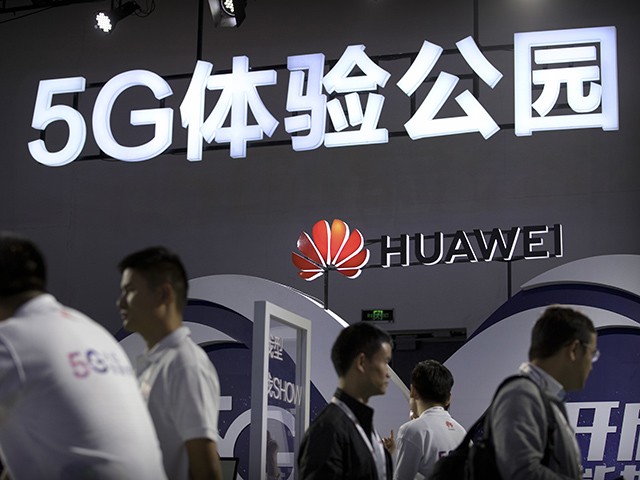At Your Service
The idea that economic growth is faltering received another blow on Wednesday when the Institute for Supply Management reported that the services sector expanded for the eighth straight month in August.
The ISM services index rose to 54.5 in August, up from 52.7 in July.
The business activity index moved up from 57.1 in July to 57.3 in August. The indices of new orders, inventories, and prices all increased. The employment index also rose, indicating that demand for workers remains high, and the labor market is still very tight.
Economists had expected it to dip to 52.4. The 54.5 reading was higher than the upper end of the range of 53.9 in the Econoday survey, an indication that this was not only an unexpectedly strong report but beyond what even the most bullish analysts saw coming.
“There has been an increase in the rate of growth for the services sector, reflected by increases in all four subindexes that directly factor into the composite Services PMI and faster supplier deliveries. Sentiment among Business Survey Committee respondents varies by industry; however, the majority of panelists are positive about business and economic conditions,” said Anthony Nieves of ISM.
Any score over 50 indicates an expansion of activity for the sector. The headline index has been in expansion territory all year. The sector has grown in 38 of the last 39 months, with the lone contraction in December of last year.
The expansion is broad-based. Thirteen of the industries surveyed reported growth in August, led by real estate, rental & leasing, and accommodation & food services. It’s very hard to slow an economy down when real estate and restaurants are dong so well. The five industries that reported a decrease included agriculture, forestry, fishing & hunting, and mining. Those are obviously important parts of the economy but they are by no means leading indicators.
Fed Officials Set to Increase Economic Growth Projections
Do Fed officials really think this is how an economy behaves when monetary policy is “restrictive?” Going by the data, monetary policy appears neutral at best or even accomodative.
The comments from survey participants are almost giddy.
“Restaurant sales and traffic trends remain positive year over year and compared to pre-pandemic (levels). Hiring is stable, with quality employees available,” said one respondent.
“Warnings of a possible recession in 2024 are not being taken very seriously by top management. The same experts warned that the country would be in a recession by now,” another survey respondent said.
The Treasury curve went more deeply negative on Wednesday. This likely reflects a growing suspicion the strength of the expansion right now portends a more assertively restrictive monetary policy down the road. At the very least, the idea that the Fed may be near cutting rates seems increasingly ridiculous.

Traders work on the floor of the New York Stock Exchange (NYSE) on September 5, 2023, in New York City. (Spencer Platt/Getty Images)
Bloomberg has now come around to the idea that the Fed will likely have to change its mind about the pace of growth, bringing it in line with a position we have taken for several weeks now.
The US economy has been looking so solid lately that Federal Reserve officials will probably need to double their projection for growth in 2023 when they publish an updated outlook later this month.
Following a string of stronger-than-expected reports on everything from consumer spending to residential investment, economists have been boosting their forecasts for gross domestic product. One widely-followed, unofficial estimate produced by the Atlanta Fed even has it expanding 5.6% on an annualized basis in the third quarter.
That marks a sharp turnaround from three months ago — the last time policymakers updated their own numbers — when the consensus view was that the economy would stall in the current quarter. And it may be enough to prompt Fed officials to scale back their estimates for interest-rate cuts in 2024.
Speaking of which, the Atlanta Fed updated the GDPNOW reading of third quarter growth on Wednesday. It remains at 5.6 percent. While we doubt that the official number released in October will show a five percent or higher growth rate, the longer GDPNOW stays in the stratosphere, the more likely it is that the official growth number comes in higher than three percent.
Factory Orders Were Better Than They Looked
The Commerce Department’s factory order data released on Tuesday could easily mislead anyone just reading the headline. Factory orders plunged 2.1 percent in July, which at first glace would seem like evidence of a very sharp downturn.
But beneath the hood, the engine of the economy is still purring. Excluding transportation—which includes the extremely volatile civilian aircraft category—orders were up 0.8 percent for the month. Machinery orders jumped 1.2 percent. Computer orders rose 2.2 percent. Orders for nondefense capital goods excluding aircraft—a proxy for business investment—rose 0.1 percent, which was better than expected.
If anything, orders are likely to rise in the future because business inventories are unsustainably low given consumer demand. So, while the manufacturing sector has been a drag on the economy in the first half of the year, that is unlikely to continue in the second half.

Visitors look at a display for 5G wireless technology from Chinese technology firm Huawei at the PT Expo in Beijing on Sept. 26, 2018. (AP Photo/Mark Schiefelbein)
China Cracks Down on the iPhone
The Wall Street Journal reported that China is banning government officials from using iPhones and other foreign-branded devices for work purposes. Not coincidentally, China’s Huawei is launching its own smart phone. Sending the signal that iPhones are unpatriotic cannot help but boost Huawei sales.

COMMENTS
Please let us know if you're having issues with commenting.